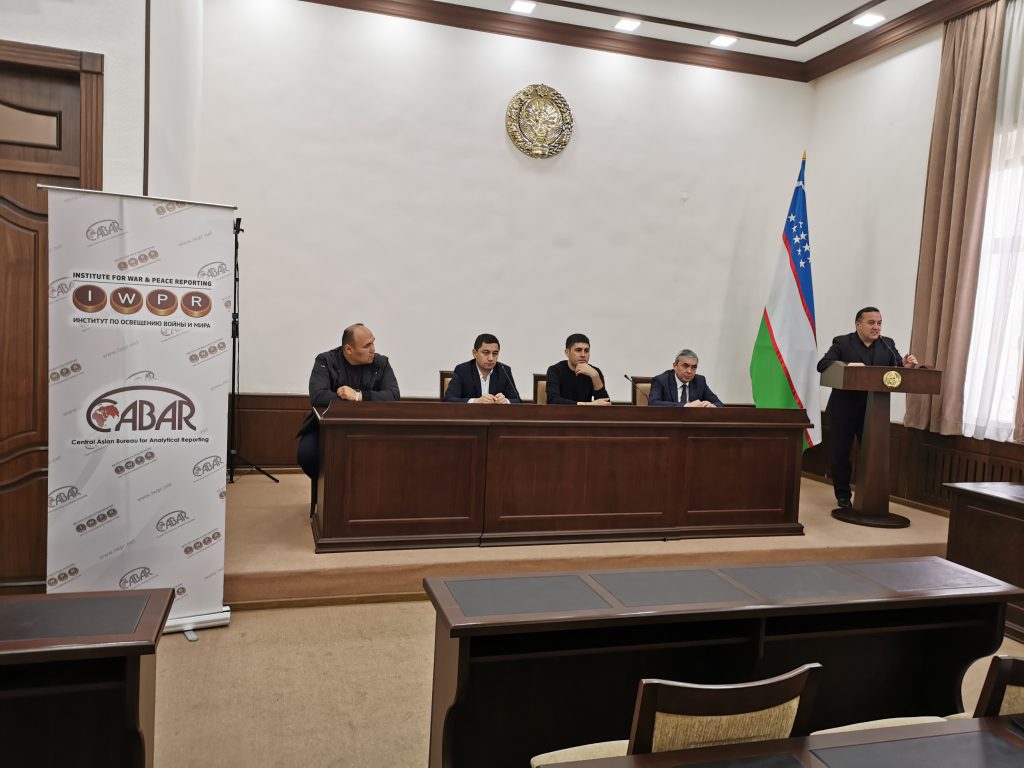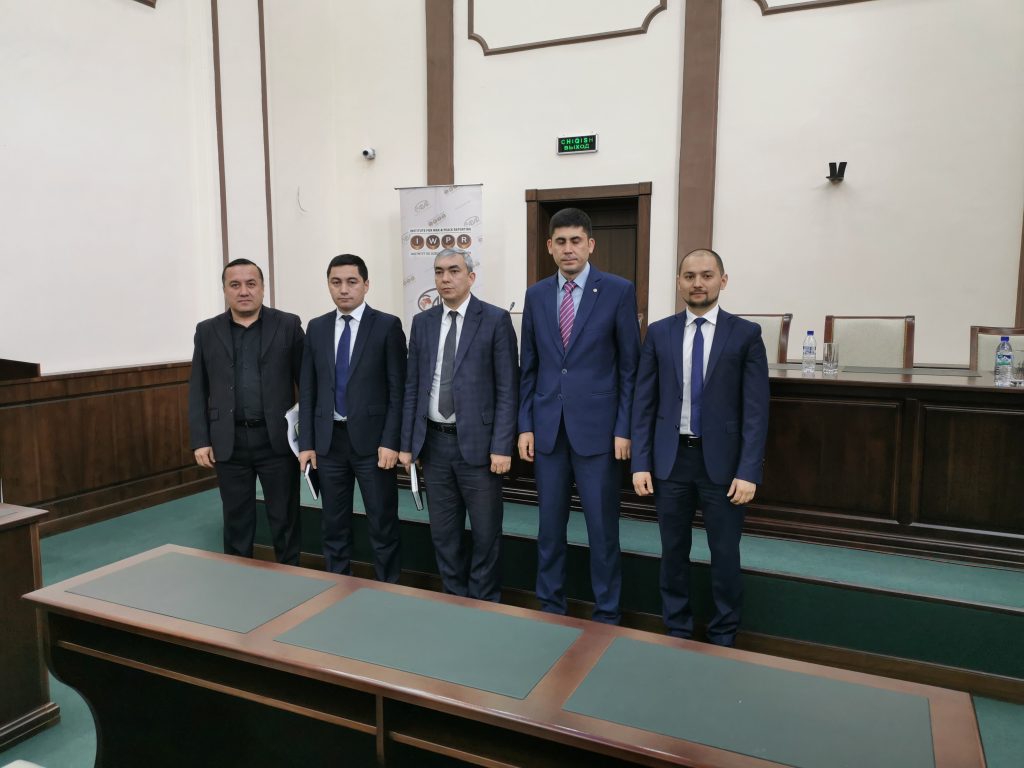In February this year, the Ministry of Mahalla and Family has been established in Uzbekistan. The department is called upon to build a “well-maintained and safe mahalla”, as well as to establish close cooperation with local authorities to improve the social and spiritual atmosphere in families and mahallas.
This reiterates the special status of the mahalla and the importance of this institution in solving social problems.
“Despite the problems that the institute of mahallas are facing today, few things can undermine their useful role in maintaining respect for values and civic consciousness and, of course, in introducing national identity in every community,” the anti-corruption and human rights expert notes Codir Kuliev.
[slider source=”media: 3714,3717,3716,3713,3712″ limit=”10″ width=”500″ height=”260″ title=”no”] Photo CABAR.asiaDuring 4 months, IWPR conducted 11 dialogue meetings for 451 representatives of the mahalla of Tashkent. The events used the same approach and methodology as in Kyrgyzstan, Tajikistan and Kazakhstan.
he meetings were organized in partnership with the Committee on Religious Affairs of the Republic of Uzbekistan (CRA), the Center for the Study of Regional Threats (CSRT)
Speakers
For each district separate meeting was conducted. The program consisted of presentations of leading specialist of the information and analytical department of the CRA Bahadir Daminov, migration expert Alisher Sadykov and expert of radicalization issues Tadzhibaev Muzaffar. The meeting concluded with Q&A session where sensitive questions were raised

Topic of discussion
Religious issues. The meetings started with a presentation of Bahadir Daminov. He spoke about the religious diversity of Uzbekistan. To date, 16 faiths and 2275 religious organizations are represented in the country. 2092 of them are Islamic, 166-Christian, as well 8 Jewish communities, 6 – Baha’is, 1 community of Krishna consciousness, 1 Buddhist temple and the interfaith “Bible Society of Uzbekistan”.
The predominant religious majority are Muslims – 94% of the population. Daminov noted that Uzbekistan is a secular state and religion is not reflected in state power – no religion is official and all religions are equal in the eyes of the state. He emphasized that Uzbekistan has a law on religious freedom and no one can force to believe in certain faith.
Sensitive topics were discussed at the meeting. such as the construction of churches and temples, the processes of proselytism and cases of reburial.
“Uzbekistan has a very multi-confessional historical heritage, which is reflected in religious diversity. We work to strengthen religious tolerance and understanding of secularism. All religious organizations are equal and have the same rights. Conducting interactive meetings is very important. As we see, people had a lot of questions ”. stated Daminov Bakhadyr
Migration. Uzbekistan is the leading country in Central Asia in the number of labor migrants abroad. According to the Agency for External Migration of Uzbekistan, 2.3 million people work abroad.

Migration expert Alisher Sadykov highlighted two issues. The first is visa fraud. The second is the fraud of private employment agencies. As the speaker explained, migrants spend considerable money by local standards to get abroad, but they cannot find work upon arrival. And therein lies a great danger. These people are upset, they spent the last money, and recruiters of extremist organizations can skillfully take advantage of this.
“What to do? Solutions is there – representatives of mahallas should carry out explanatory work on their mandate. It is necessary to inform the population about the nuances of labor migration, to increase legal literacy. These meetings are very useful and it was right to start from Tashkent, as most people leave from here,”Alisher Sadykov shared.
Prevention of violent extremism. The topic of extremism is not new to Uzbekistan. In the early 2000s, a number of terrorist acts took place in the country, propaganda was actively conducted to overthrow the secular structure of the state. Today the situation is not so critical, but has its hidden threats.
Muzaffar Tadjibaev, CSRT expert, spoke about new challenges and channels of radicalization. Now the majority of information population receives via Internet, in particular through social networks. To educate citizens on countering extremism, resources such as stopterror.uz and the Vatan radio have been created
“We need to increase our level of knowledge, as challenges appear on daily basis day. These events should take place in the communities as well,”says Saera Malikova, a participant in the meeting in Mirzo Ulugbek district

Q&A. Most of the questions related to the religious diversity of Uzbekistan. Representatives of the Mahallas lacked knowledge in this matter. Participants expressed initiative to create brochure on religious diversity of Uzbekistan.

Another issue was how to mitigate conflicts in cases of the construction of new religious buildings. Participants faced the need for outreach discussions when the construction of worship houses was perceived as hostile by local communities. The answer was that the chairmen of the mahalla should refer to the law, which provides freedom of religion, and to ensures right to build houses of worship in the manner prescribed by law. Experts noted that it is necessary to develop tolerance among the population and recall the historical context of the Republic of Uzbekistan, where many faiths peacefully coexisted for centuries.
“We must develop our art of dialogue and at the very beginning prevent conflicts. Through outreach we will achieve great results. Such meetings are aimed at getting answers to difficult questions. Now your task is to convey this knowledge to the population, ” concluded Turgun Kirgizbaev, the head of the department of the Ministry of Mahalla and Family.

